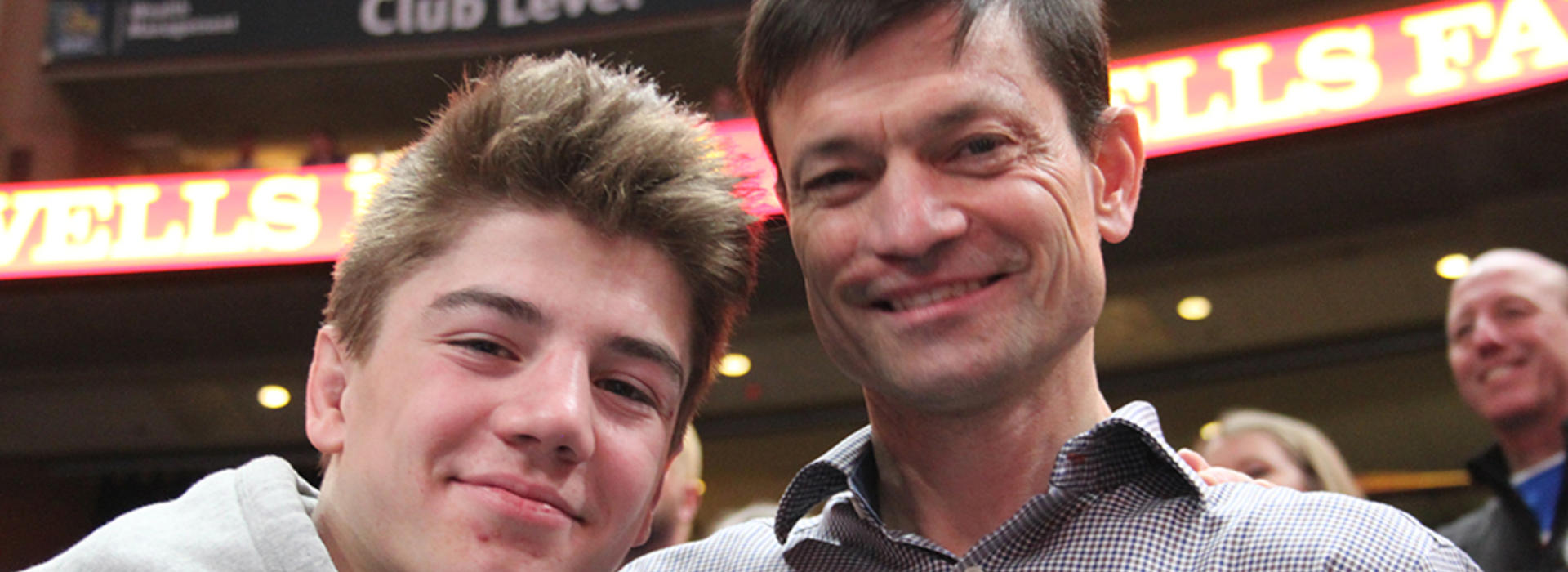
U of M Faculty Member Helps Save Wrestler’s Life
Mark Berg, MD, experienced the two most opposite ends of the emotional spectrum on February 29—jubilation and terror. An athlete at the state wrestling tournament collapsed while Dr. Berg worked ringside as the on-site physician.
“I thought initially that maybe it was a sports injury, but sensed in the short time we had that maybe it was something more serious,” he said. “Basic life support (BLS) is something we prepare for but hope to rarely use. When he gave the thumbs up going out of the arena, that was a big relief.”
Dr. Berg and a team of athletic trainers from the Institute for Athletic Medicine revived the athlete using standard BLS procedures and an automated external defibrillator. Later that evening, Dr. Berg’s son snagged a state wrestling title.
“I’m still wrapping my head around all of those emotions,” he said.
Dr. Berg’s connection to wrestling dates as far back as his childhood. His father practiced medicine in New Prague, Minnesota, a small town that enlisted his father as a volunteer at various sporting events for many years. After graduating from the University of Minnesota Medical School in 1995, Dr. Berg joined his father’s practice in New Prague and continued the tradition of volunteering.
“I spent 18 years there, and the appreciation from the community of New Prague that I was given, gives me confidence,” he said. “I think that’s what carried over into the situation that occurred at the tournament. Stepping up is something small town doctors are doing around the state all the time.”
In 2016, Dr. Berg and his family moved to the Twin Cities for his current role as an assistant professor in the Department of Family Medicine and Community Health. Now at the U, he has extended his connection to the wrestling community through research.
“My research at the Medical School has focused on better understanding skin conditions in athletes, particularly fungal skin infections,” he said.
With early guidance from department faculty, Michael Miner, PhD, and William Roberts, MD, MS, Dr. Berg started investigating better ways to detect fungal infections. He teamed up with Daniel Miller, MD, in the Department of Dermatology, to test a device manufactured in Japan. He hopes this new technology will benefit the wrestling community and have applications for Dr. Miller’s transplant patients where similar fungal infections can be life- or limb-threatening.
Until then, Dr. Berg plans to continue making an impact at the ringside—both as a father and as a physician.
“As a small town doctor, you go through many emotional things. It’s something I did all the time in New Prague,” he said. “I’m excited now to see where this athlete’s life takes him.”